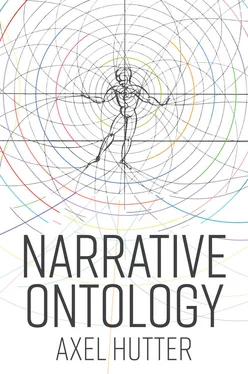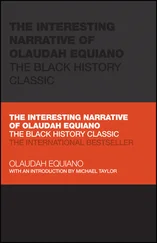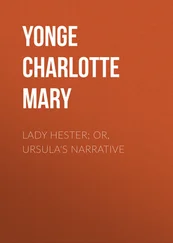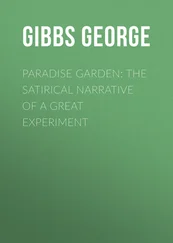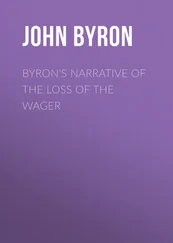1 ...8 9 10 12 13 14 ...22 That in this way both art and human being appear, under the hegemony of an ontology of meaninglessness, as ‘exceptions’, which may briefly jar thinking but must remain in the end insignificant for the universal understanding of being and the world, forges between them a peculiar relationship. One may presume that the enigma of the human double essence of being – that one is at home both in being and in meaning – reappears in the enigma of art. For this reason, one can anticipate that a deeper understanding of the specific truth of art will open up our understanding of the specific truth and dignity of human existence.
One can illustrate the extent to which aesthetic experience deviates from the norm of an ontology of meaninglessness again with the primordial phenomenon of understanding a text. When reading a poem or a novel, one is occupied primarily with the meaning of what is read. While the meaning is indeed accessible only by means of the being of a certain book with certain physical properties, by means of certain pages of paper with letters formed in such and such a way, competent reading may emancipate itself from these literal starting conditions to devote itself entirely to the adventure of understanding the meaning. No less a figure than Paul Valéry compared for this reason the essence of poetry with the peculiar art of reading . Poetry suffers the fate, namely, of being ‘judged by many people who have not the slightest idea of the musical qualities of speech, and who do not know how to read [qui ne savent pas lire]’ (1960, 176). To counter this, Valéry refers to the fundamental difference between the text that is merely looked at and the text that is actually read (le texte vu , le texte lu ): ‘These two modes of looking are independent of each other. The text looked at and the text read are two completely different things, for the attention given to the one excludes the attention given to the other’ (1957/60, 1247). 3
Whoever looks at a text directs attention to its objective properties: colour and the quality of the paper, the spatial shape of the black figures, including their arrangement in smaller and larger groups. While much is accessible to this person, one thing is not: the meaning of the text, which discloses itself only to the one who does not look at the text but rather reads it, and thus ‘annihilates’ the objective properties of the text, as Valéry says. This is because readability is the ‘quality of a text that prepares and facilitates its consumption, its annihilation by the spirit, its transubstantiation in events of the spirit’ (1247). 4
Empirical particulars of a text, each of which I can consider and recognize separately, are in the first instance, on the literal level of reality – that is, isolated from an overarching unity, nothing more than what they are. In such a consideration and recognition, they make no sense, because everything isolated is meaningless in its isolation. Meaning always entails an overarching unity of meaning because the unity determines the meaning of the individual, while meaning is what it is – that is, it means what it means – only in and through this unity. The art of reading in the sense of understanding thus presupposes the power to emancipate oneself from the literal immediacy of the visually given details in order to place them in a context. And so the adventure of freedom and of understanding may begin.
It is important to point out here that the literal being of the world is not simply crossed out in reading once this being is understood within the scope of a narrative ontology of meaning. Rather, letters are precisely the things that need to be interpreted and understood in the context. The meaning of the text is its meaning in its literalness. Letters thus constitute the empirical reality of a text. They must be carefully considered, and at the same time transcended, in order for one to become aware of the meaning manifest in a fundamental change in aspect of reality, in becoming transparent towards meaning.
Not only is empirical reality of being compatible with the transcendental reality of meaning (which implies a transcendental ideality of being); more than that, literalness and meaning stand in a strict relation to one another. In this way, the fatal dualism of being and meaning is overcome. Meaning is certainly distinct from being, yet at the same time , in this distinction, strictly related to being; meaning does not lose its unique character in the self-differentiated identity of meaning with being, but rather gives its character shape to begin with. The freedom of reading consists in the deeply enigmatic, and thus deeply human, capacity to grasp being meaningfully and to make the dead letter transparent in terms of the living spirit, which articulates itself in it and thereby makes itself intelligible.
Attention to the narrative ontology of freedom, which is implicit in every act of reading, opens up the possibility in the first place of a truly appropriate understanding of poetry. Such an attention opens the prospect of freeing artistic talk from the misunderstanding that it is illusory talk about nice illusory worlds without thereby promoting the opposing misunderstanding, according to which aesthetic language is simplistically related to the empirical ‘letters’ of reality or to the psychological experiences of the subject. The art of language is thus no longer misconstrued as a successful or unsuccessful form of object knowledge, but rather correctly understood as a form of self-knowledge.
A philosophy that grasps itself as a coherent form of self-knowledge can for this reason form an alliance with art. In clear consciousness of its own task and tradition, philosophy may talk not only about art and literature (which art science and literary studies also do), but rather, and above all, about that which art and literature themselves talk about – namely, about the meaning of selfhood.
Each human lives his or her life in the concrete temporal form of a life story. We can understand ourselves only when we understand the respective story that is our life. If this is true, then philosophical self-knowledge must, as it were, ‘take measure’ from the great masters of narrative art. Thus, the present enquiry chooses not only language art as such as its ally, but rather a specific language artist and an exemplary work of narrative art. The project of a narrative ontology should not only be displayed conceptually on a general meta-level, but at the same time carried out in the interpretation of a narrative artwork. The remainder of the introduction will clarify why the choice fell upon Thomas Mann, while only the body of the investigation can provide a justification for having chosen Joseph and His Brothers .
The first reason a philosophical enquiry seeks to connect with Thomas Mann is that he himself accommodates a reciprocal illumination of philosophy and literature by situating his own way of thinking and working in explicit proximity to philosophy. Accordingly, in one of his earlier essays, one reads: ‘The eighteenth, the actual literary century, loved to distinguish the “philosopher” from the “scholar” – a dry and cantankerous being – and it seems that what was meant by this was more or less what we today understand by a literary figure.’ The essential affinity between philosophy and literature is based, then, for Thomas Mann on their common opposition to the ‘scholar’, on a critical alliance against everything dry and pedantic: ‘Everything academic is to be excluded’ (1993, 158–9).
What is meant by this becomes clear once one brings to mind the model Thomas Mann pursues in his essay. In his inaugural lecture in Jena from 1789, Schiller characterizes and defends university freedom in terms of the distinction between the bread-and-butter scholar and the philosophical mind : ‘Quite different are the plans of study which the bread-and-butter scholar and the philosopher lay out for themselves.’ The former ‘puts his intellectual ability to work only in order to improve his material position and to gratify his petty craving for recognition’. For this reason, his most important concern is ‘to separate as completely as possible the fields of study which he calls “professional” from all those which attract the intellect purely for their own sake. Every moment spent on the latter he counts as taken away from his future profession, and never forgives himself this theft’ (1972, 322).
Читать дальше
